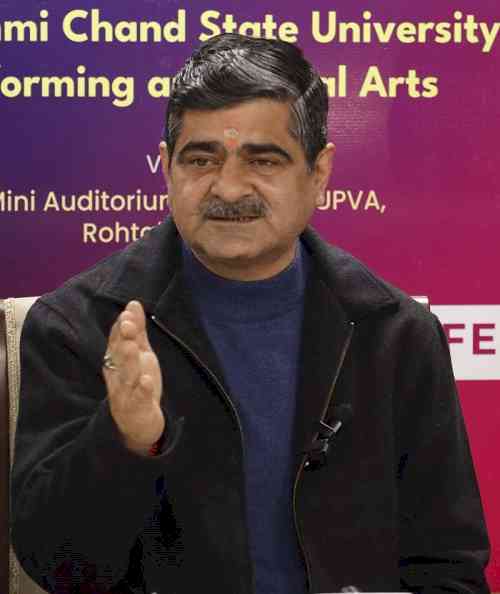Special lecture on “Strategic Autonomy and Contemporary World”
Department of Defence and National Security Studies, Panjab University, Chandigarh today organised a special lecture on the topic “Strategic Autonomy and Contemporary World” by Prof. Vijay Khare.

Chandigarh, August 20, 2025: Department of Defence and National Security Studies, Panjab University, Chandigarh today organised a special lecture on the topic “Strategic Autonomy and Contemporary World” by Prof. Vijay Khare.
Prof. Khare is a distinguished academic and expert in international relations, global politics, and strategic studies. He is currently the head of department of Defence and Strategic Studies at Savitribai Phule Pune University, Pune, Maharashtra.
In his lecture, Prof. Khare focused primarily on contemporary global order and challenges to strategic autonomy of the modern states. He traced the development of modern global political architecture from the first World War to the 21st century. He gave a chronology of major international events in order to understand the current international scenario. He pointed that India’s foreign policy of maintaining strategic autonomy was begun with the Non-Alignment Movement adopted by India’s first Prime Minister Jawaharlal Nehru, and India faced various sanctions and challenges from western world in its pursuit of building a considerable economic and military power in order to maintain its strategic autonomy.
Prof. Khare emphasised that in the post Cold War era, a multipolar world is emerging, where India's efforts have shifted from maintaining strategic autonomy to strategic balance in order to secure and pursue its national interests. He also expressed his apprehension that lack of research and innovation is hindering India progress at the world stage. He suggested that the government should invest in building its soft power to influence world opinion in its favour. He concluded the lecture by saying that India needs to maintain strategic balance along with strategic autonomy in order to secure its interests.
The lecture was organised under the guidance of Prof. Jaskaran Singh Waraich, Chairperson, Department of Defence and National Security Studies. The department felicitated the speaker, and welcomed the guest, faculty members, research scholars and students present for the event. Dr. Priya introduced the theme of the special lecture and its relevance to international politics to the audience.
Dr. Urmila proposed the vote of thanks and recognised the importance of such events for creating awareness of international events among the academic community. The lecture was attended by the faculty, research scholars, students and student officers of the Department. The session proved to be intellectually enriching and aligned with the department’s commitment to fostering critical thinking and academic dialogue.



 City Air News
City Air News 









